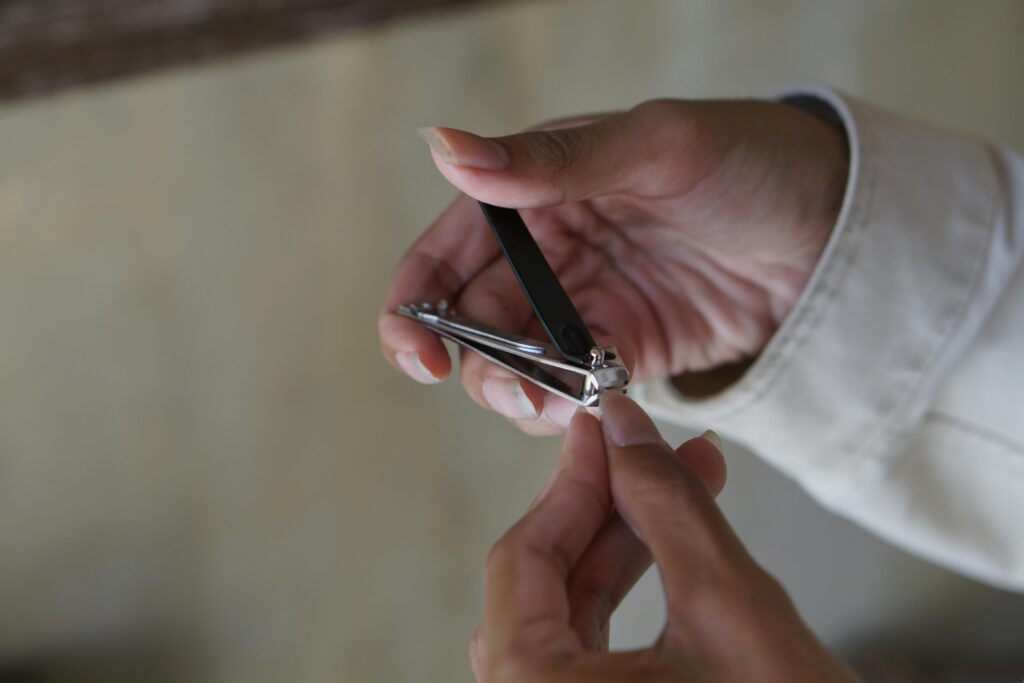Ever had a nail clipper pinch or tear your nails instead of cutting them cleanly? Yeah, me too. And trust me, it’s not the tool’s fault—it’s neglect.
Nail clippers are the unsung heroes of our beauty routines, yet they often don’t get the TLC they deserve. In this post, you’ll learn why clipper maintenance is vital for both hygiene and performance. We’ll explore how to care for your tools, step-by-step guides for cleaning and sharpening, best practices to extend their lifespan, and some hilarious fails along the way.
Table of Contents
- Why Clipper Maintenance Matters
- How to Maintain Your Nail Clippers in 5 Easy Steps
- Pro Tips for Longevity
- Real Stories: How Proper Maintenance Saved My Mani-Pedi Routine
- Frequently Asked Questions About Clipper Maintenance
Key Takeaways
- Poorly maintained clippers can cause painful cuts and infections.
- A simple cleaning routine extends the life of your nail tools significantly.
- Regular sharpening ensures precise cuts every time.
- Mistakes happen (like using WD-40 on my clippers—yikes), but there’s always a fix!
Why Clipper Maintenance Matters

Nail clippers may seem indestructible, but over time, rust, dull blades, and gunk buildup can sabotage even the sharpest pair. Neglecting clipper maintenance leads to jagged cuts, bacteria growth, and eventually, unusable tools. Imagine spending hours perfecting a French manicure only to ruin it with an uneven snip because your clippers weren’t up to par. Not cool.
I once skipped cleaning my clippers for weeks during a busy season. Big mistake. A client noticed greenish gunk under her nails after I accidentally transferred grime from my dirty tools. Talk about cringe-worthy moments that tanked my credibility as a nail artist!
How to Maintain Your Nail Clippers in 5 Easy Steps

- Disassemble When Possible: Some clippers come apart easily; others don’t. Check if yours does, then separate components for thorough cleaning.
- Clean After Every Use: Wipe down blades with rubbing alcohol or a disinfectant solution. This prevents germ buildup and keeps metal parts shiny.
- Remove Stubborn Gunk: Use a small brush (like an old toothbrush) dipped in warm soapy water. Scrub gently around hinge areas where residue hides.
- Sharpen Regularly: Invest in a fine-grit emery board or honing stone. Lightly run the blade edge across the surface to restore sharpness without damaging it.
- Dry Thoroughly: Moisture = Rust. Always dry your clippers completely before storing them in a breathable container or pouch.
Optimist You: “Just follow these steps!”
Grumpy You: “Ugh, maintenance again? Yes, unless you want your clippers falling apart mid-manicure.”
Pro Tips for Longevity

Best Practices Worth Stealing
- Oil the Hinges: A drop of mineral oil every month keeps hinges smooth and prevents rust.
- Store Smartly: Avoid tossing clippers into overflowing makeup bags. Use dedicated cases or organizers.
- Avoid Harsh Chemicals: Skip bleach or acetone-based cleaners—they corrode metal finishes faster than TikTok trends fade.
A Terrible Tip Disguised as Genius
“Try supergluing loose parts back together!” No. Just no. Superglue is great for crafts, terrible for precision tools. Save yourself future headaches and replace damaged components—or invest in higher-quality clippers initially.
Real Stories: How Proper Maintenance Saved My Mani-Pedi Routine
Let me tell you about Sarah, a fellow nail artist who thought shortcuts were golden. She’d skip cleaning between clients, claiming she was “saving time.” Disaster struck when one customer complained of an infection traced back to improperly sanitized tools. That incident cost her business big-time until she revamped her entire process—including rigorous clipper maintenance.
Sarah now swears by her new regimen. Her clippers last twice as long, and her customers rave about smoother services. Moral of the story? Good habits pay off handsomely (pun intended).
Frequently Asked Questions About Clipper Maintenance
How Often Should I Clean My Nail Clippers?
Ideally, after each use. If that feels excessive, aim for at least once daily when working consistently with clients or weekly for personal use.
Can I Use Cooking Oil Instead of Mineral Oil?
Technically, yes—but please don’t. Cooking oils go rancid quickly and attract dust. Stick to mineral oil or specialized lubricants designed for metal tools.
What If My Clippers Are Beyond Repair?
Sometimes, replacements are inevitable. But first, consult a professional sharpener. They might breathe new life into seemingly dead clippers.
In Conclusion…
Maintenance isn’t glamorous, sure. But neither is ruining a perfectly good manicure due to dull, rusty clippers. Follow our guide to keep your tools in tip-top shape and watch your nail game reach pro status. Remember, happy clippers = happy fingertips!
Like a Tamagotchi, your SEO needs daily care.


